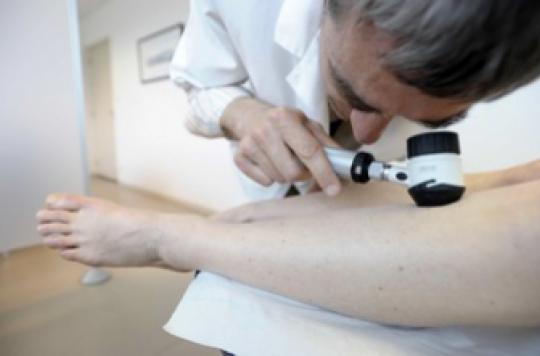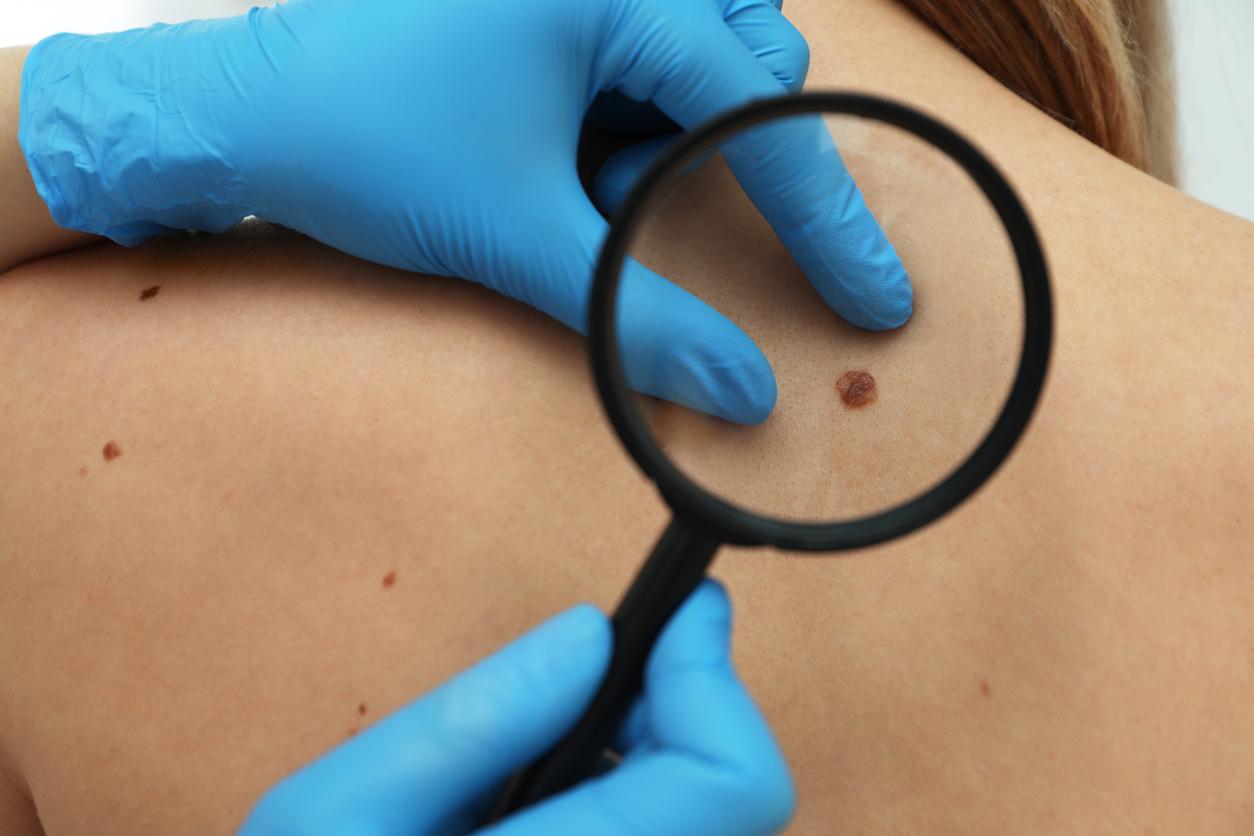Singles, especially men, are diagnosed at a later stage when they develop melanoma. Celibacy, but also sensitivity to prevention are involved.

Would living alone be harmful to health? Researchers from the Karolinska Institutet (Sweden) reported on March 31 in the Journal of Clinical Oncology that celibacy is associated with a later diagnosis of malignant cutaneous melanoma. This is alarming when you consider that the survival rate for this aggressive form of skin cancer is 90% when diagnosed early.
30% higher risk of death
The researchers reviewed more than 27,000 records of melanoma patients between 1960 and 2007. They studied the stage at which the disease was diagnosed, the outcome of the disease (cure or death) as well as marital status. Depending on whether you are a man or a woman, in a relationship or single, the first two parameters vary.
“Living alone, among the male population, is significantly associated with reduced melanoma survival, in part because the diagnosis is made at a later stage,” explains the Dr Hanna Eriksson, lead author of the study. “It’s valid for men of all ages. The risk of a diagnosis occurring at stage 2 rather than stage 1 is 42% among single men, as is the risk of being diagnosed at stage 3 or 4 rather than stage 1. For therefore, the risk of dying from this form of cancer is a third higher among this population than among men in a relationship. A logical result in the eyes of Prof. Brigitte Dréno, director of the dermato-oncology unit of Nantes University Hospital, contacted by why actor. “It is much more difficult to self-monitor the skin when you are alone,” she says, stressing that it is then necessary to observe yourself in a mirror.
Women, a “vector” of health
The outcome of the disease, on the other hand, is not influenced by the marital status of women, although the risk of a late diagnosis is slightly higher in elderly unmarried women. “The woman is more often the vector of the fact of taking care of her health, and therefore stimulates the spouse to go to see a doctor”, explains Professor Brigitte Dréno, who also describes the woman as “more sensitive to screening information. “
According to the authors of the study, access to information on melanoma can vary according to sex and age, which would explain why older men and women consult later. They also assume that men do not perform enough skin exams. It will therefore be necessary to develop “targeted interventions for early detection”. An opinion shared by Professor Dréno, according to whom this study “must make the target man considered to require monitoring by a doctor”, especially if the patient is fair skinned, wears many moles and has family history.
.














